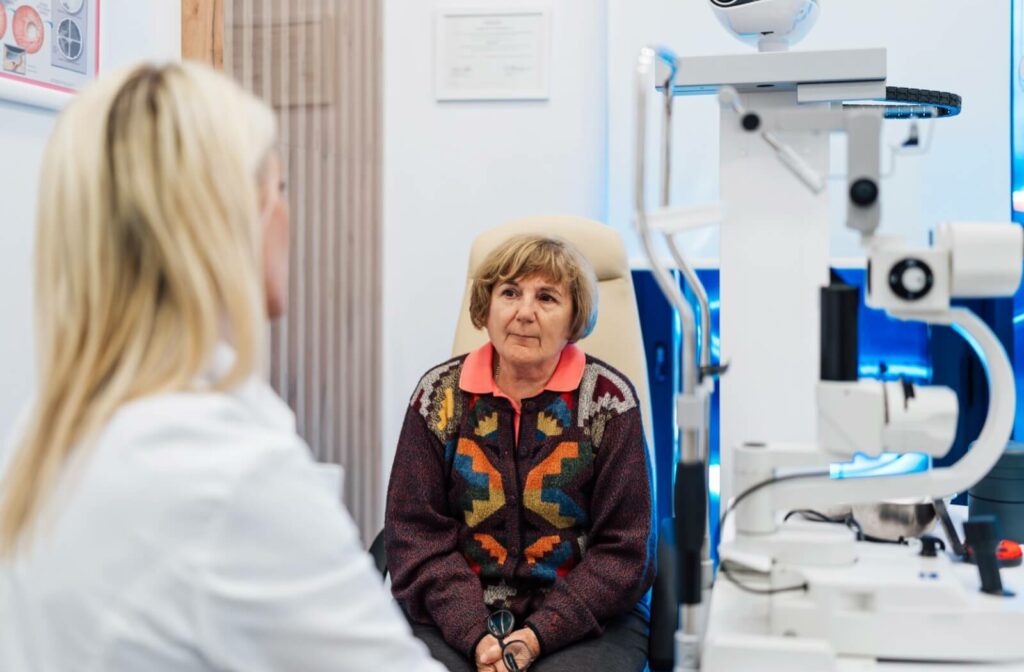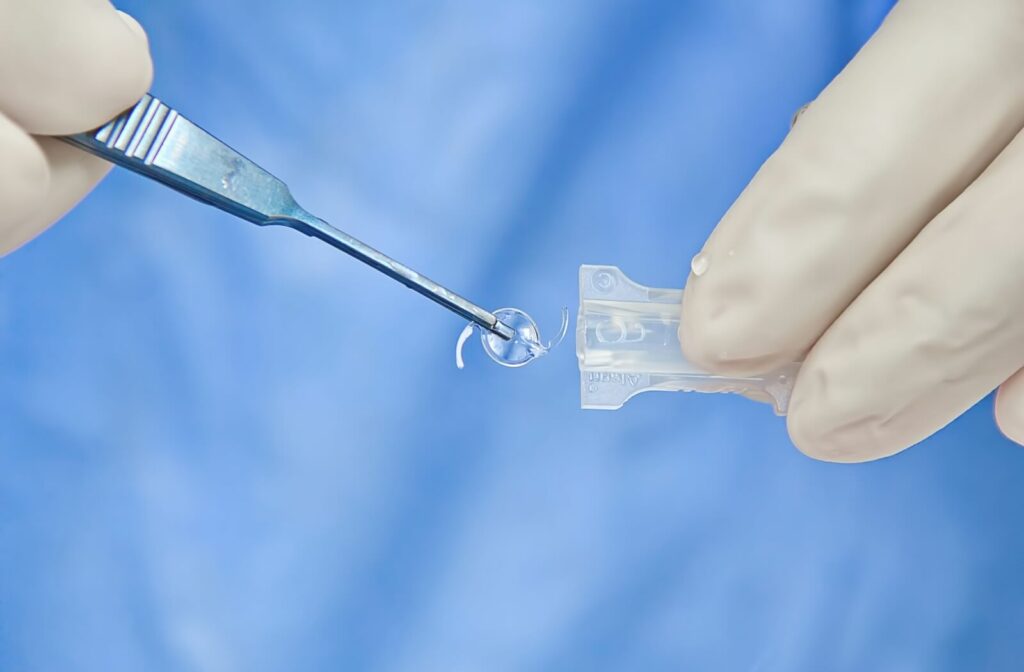Cataracts are a common condition that can significantly impair vision. Fortunately, they’re highly treatable through cataract surgery. The procedure replaces your cloudy natural lens with an intraocular lens (IOL).
Cataract surgery is one of the most commonly performed procedures worldwide. It’s generally a safe and effective way to restore your vision.
However, as with any surgery, it’s crucial to be informed about what to expect from your surgery. There are advantages to cataract surgery, and safety should always be a top priority.
What Are Cataracts and The Visual Problems They Cause?
The eye’s natural lens is a transparent, flexible structure located behind the pupils. It works with the cornea to focus light into the eye, allowing you to see. It’s like the entryway for your visual system.
Cataracts are cloudy, opaque spots that develop within the lens. The lens can become hazy due to a number of factors, including aging, lifestyle habits, UV exposure, eye injuries, and underlying conditions that also play a role.
When the lens clouds, it blocks light entering the eye, gradually causing significant vision impairment as cataracts worsen over time.
How to Recognize Cataracts
Common signs and symptoms of cataracts include:
- Blurry or cloudy vision
- Difficulty seeing at night
- Sensitivity to light or glare
- Faded or yellowed colors
- Seeing halos around lights
- Frequent prescription changes
These symptoms quickly interfere with daily tasks like reading, driving, and recognizing faces. Fortunately, with cataract surgery, clear vision is within reach.
The Advantages of Cataract Surgery
Cataract surgery can substantially improve your daily life, lessening your need for corrective lenses and empowering you with clearer, brighter vision to maintain your independence.
Improved Clarity
Cataract surgery can enhance visual clarity, helping you perceive details more sharply.
Enhanced Daily Activities
Daily activities, like reading, driving, and facial recognition, become more effortless, supporting an active and independent lifestyle. Improved vision may contribute to safer movement and easier navigation of daily tasks.
Long-Term Visual Improvement
Because cataract surgery replaces the clouded natural lens, cataracts do not return. Improvements from cataract surgery are often long-lasting, offering clearer vision for many years.
Increased Color Vividness
Cataracts can cause colors to appear dim or muted. With a new artificial lens, colors can appear brighter and more vibrant, allowing for a fuller appreciation of visual surroundings.
Quick Recovery
Many individuals experience rapid healing and notice improved vision within a few days post-procedure.
High Rate of Success
Cataract surgery is a common and highly successful procedure, with 97% of people achieving improved vision.
Reduced Dependence on Glasses
Depending on what type of implant is chosen by the patient and doctor, individuals can experience a significant decrease in their reliance on corrective lenses after surgery. In some cases, patients will no longer need to wear glasses or contact lenses at all. While age-related vision changes can still occur, cataracts—and related symptoms—won’t return.
Tips for Preparing for Your Cataract Surgery
It’s important to remember that while cataract surgery is simple, being prepared is key. You deserve a smooth procedure, so you should prepare ahead of time.
It helps to:
- Follow all pre-surgery instructions from your doctor carefully
- Arrange for someone to drive you to and from your appointment
- Follow the instructions about when to stop eating or drinking before surgery
- Wear comfortable clothing on the day of the procedure
- Have your post-surgery eye drops ready at home
After your procedure, you may notice some mild side effects, like blurriness and light sensitivity. These typically go away within a few days. Depending on the patient’s age, severity of their cataracts, and/or a prior history of conditions like dry eye disease, some patients may take longer to heal.
What Is Cataract Surgery?
Cataract surgery is a simple procedure. The approach is designed to be minimally invasive, and the goal is straightforward—to remove the now-cloudy lens and replace it with an artificial intraocular lens (IOL).
The replacement lens feels and functions just like your natural lens, and it helps your eye focus light correctly on the retina.
There are 3 basic steps to cataract surgery:
- First, your surgeon makes a small incision in the eye
- Then, ultrasound technology breaks up the clouded part inside the lens
- The broken-down particles are removed, typically through suction
- Finally, an IOL is installed in place of the natural lens
This surgery is one of the most commonly performed surgeries in the world, and it’s considered generally safe.

Your Doctor Ensures a Safe and Effective Surgery
Cataract surgery can be effective. However, like any medical intervention, you need to consider several factors. That’s why your initial eye exam is so important—your eye doctor needs to determine if the procedure is safe for you.
Some factors known to affect the success of cataract surgery include:
- The overall health of your eyes
- The presence of other eye conditions, such as glaucoma or macular degeneration
- Your general medical health, including conditions like diabetes
- The type & severity of the cataract
- The experience & expertise of the surgeon
Some individuals may experience mild reactions to anesthesia, such as discomfort or nausea, though these are rare and manageable. Some side effects may also affect your comfort, especially if you don’t follow your post-operation instructions.
Schedule Your Cataract Surgery Consultation Today
Cataract surgery is often a life-changing procedure for many patients. At Cherry Creek Eye Physicians & Surgeons, our team is ready to examine your eyes and vision to help you find the clarity you deserve. Cataracts are common, and with our help, they’re also treatable.
If you’re considering cataract surgery and want to learn more about your options, potential risks, and recovery process, schedule a consultation today. Your doctor at Cherry Creek Eye Physicians & Surgeons can help you make an informed decision and support your journey to clearer vision while minimizing any risks.


